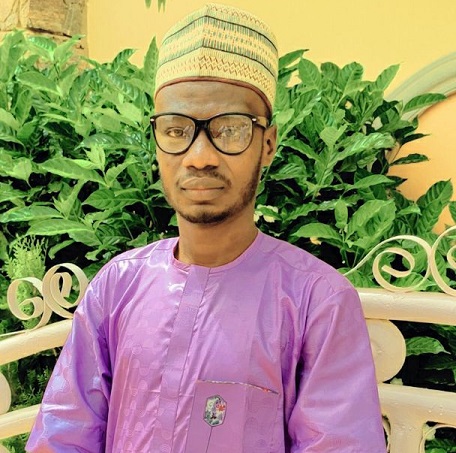By Lawi Auwal Yusuf
Researchers in social policy now prefer to use the concept of social exclusion to explain multiple deprivations that prevent individuals from joining important community activities. This goes beyond commodities that can be directly purchased. For example, it’s difficult for the socially excluded to secure a job, engage in recreational activities or participate in politics beyond mere voting.
It moves beyond consumption to examine how resources affect the participation of worse-off members in society. Poverty impinges on participation in social activities that are essential to everyday life. For instance, visiting a hospitalised brother or friend. Individuals are deprived if they cannot afford even the cheapest activities.
In the same vein, controlling inequality is indispensable if poverty and social exclusion are to be combated. Any nation with a broader gap between the rich and the poor is bound to be stubbornly enmeshed in poverty. However, some scholars accept that it is not easy to uproot inequality completely. They suggest making a poverty benchmark: income below the average. Those individuals with scanty resources less than this dividing line are considered poor with an intolerable living standard. In this case, there might be inequality devoid of poverty. This idea is primarily concerned with dissipating poverty altogether and integrating people rather than making them more equal.
It is crucial to distinguish between poverty and social exclusion. Poverty refers to material fewness or the lack of means to live a happy life. While social exclusion consists of a broader range of ways whereby members of a society are disadvantaged, consequently predisposing them to poverty. It involves a lack of participation in decision-making and civil, social and cultural life. These deprivations hinder individuals from participating fully in social life. However, both portray the existence of injustice in society.
Tackling social exclusion must involve measures to deal with institutional ethnic stratification, tribalism, sex discrimination, and gender inequality and encourage stronger community cohesion. Nonetheless, institutional ethnic stratification of minority groups is more likely to cause poverty and exclusion among disadvantaged groups than all the other factors. This is because ethnic harassment does produce fear and a sense of isolation, thereby augmenting the social exclusion produced by other inequalities.
Furthermore, women and children are more vulnerable to extreme poverty than men, while lone mothers are at higher risk. This speaks to the high rate of unemployment which is also higher among women than men. This is a reason that helps to explain the high rate of women deprivation that is becoming more noticeable. To cut women’s poverty, it’s necessary to combat the underlying causes like girls’ educational disadvantage, idleness of women, gender discrimination/inequality, lack of promotion for women on low wages and deficient educational achievement for the children of impoverished households. However, a significant increase in welfare services and full employment of women would make a difference.
Disability is another relevant factor prone to poverty and exclusion. Rude attitudes of people towards disabled individuals remain a major cause of exclusion, whereas the need now is for inclusion. Stigmatisation is not only a barrier to participation in the community but also a deliberate move to distance them from the existing opportunities. Moreover, high rates of deprivation among disabled people are a result of marginalisation in the labour market.
Unfortunately, impaired persons tend to have higher living expenses than normal persons for commodities of their special needs. The extra costs for disability include healthcare, physical aid or transport. As a result, they suffer from poverty alongside exclusion, while participation in society is restricted by sensory defects or limited mobility. This results in overall deficient health, which impedes their employability and the ability to work, unlike the non-disabled.
However, poverty and social exclusion are not inevitable consequences of disability. Instead, they are due to discrimination and failure to provide the resources and facilities needed to reduce its effect. Thus, authorities must make strict laws against the harassment of persons with an impairment. Furthermore, public and private organisations must also take reasonable steps to accommodate the needs of disabled persons until the physical environment becomes completely user-friendly for them.
The major causes of poverty in Nigeria include dead-end jobs, low pay, lack of promotion of low-income workers, poor education for the children of the poor and high taxes. The government must understand that excessive taxes such as Value Added Tax and duties tend to take up a larger share of the income of average Nigerians.
Furthermore, a lack of sound education and training for the children of ordinary Nigerians is the leading force behind poverty and exclusion. Skills are increasingly becoming more valuable in the labour market, and without them, there is a high risk of redundancy.
Joblessness is a strong predisposing factor because participation in the labour market greatly reduces the risk of poverty and exclusion, while idleness is closely correlated with them. Provision of full employment with prospects is the gateway to ensuring a better and prosperous life. It also provides the poor with social networks that give a sense of inclusion. It also helps in coping with these acute situations.
Similarly, a high number of children in a family is another factor that increases the risk of poverty compared with smaller households because of the extra costs involved.
Finally, for Nigeria to win its war against poverty, good governance must be the leading force in this crusade. Stealing, embezzlement and turning public office into an instrument of creating wealth for acquaintances and tribal brethren must utterly vanish. Contrarily, transparency, providence, judicious redistribution of resources and equal treatment of all irrespective of closeness or ethnic background must prevail.
Lawi Auwal Yusuf wrote from Kano, Nigeria

You have made a powerful impression. Kudos to you Mallam Lawi!
Slam